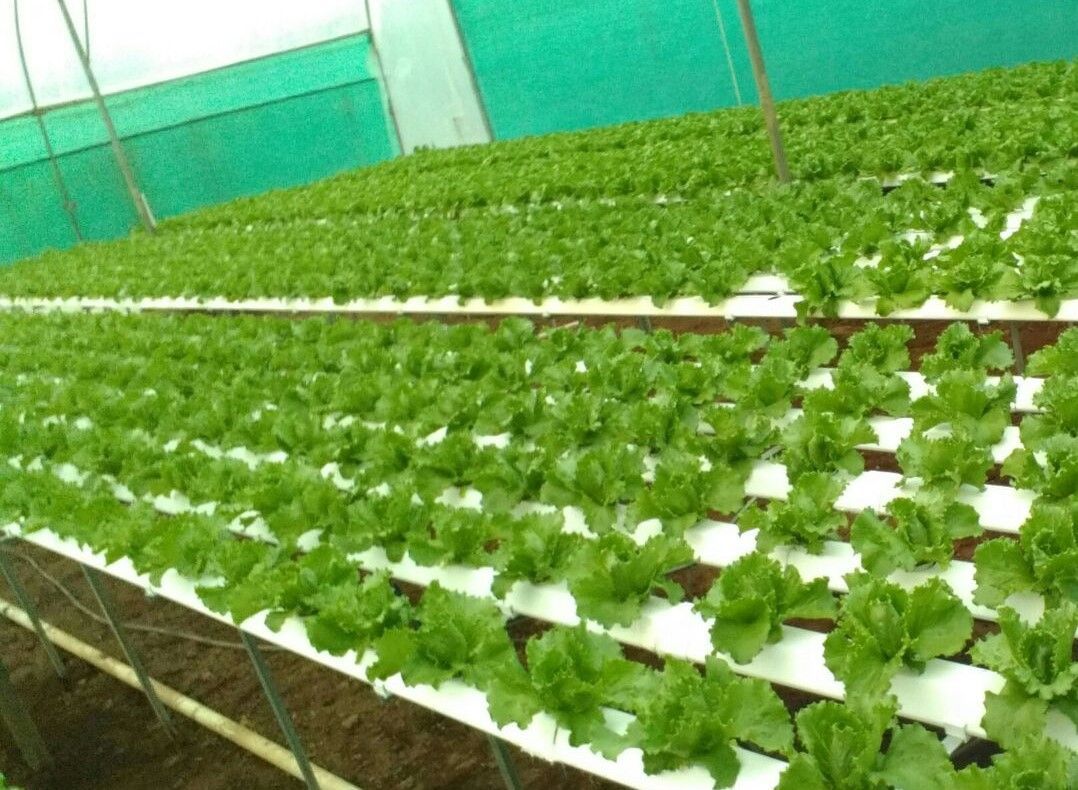
Which is better – Hydroponics VS Soil Cultivation
Which is better – Hydroponics VS Soil Cultivation
Hydroponics refers to the method of growing a plant without the use of soil. Some centuries ago, farmers realized that plants absorbed nutrients via the soil that soaks around their roots the soil, acting as a nutrient reservoir, and as a medium in which plants stabilizes itself. Hydroponic systems in India are still a rarity. Though there are now a few companies that provide hydroponics kits in India. If the water supplied to a plant already contains the necessary material and the plants are secured by another material, the soil is unnecessary. This discovery demands the attention of farmers who were involved in agriculture although it did not cause an immediate change in farming. Interest in hydroponics increased in the 20th century as they gained interest on other large-scale agricultural operations. Hydroponics farming does not need pesticides and they pose no threat to humans. Hydroponic farming uses less nutrient material to feed their plants; these exist within a self-contained environment that can easily control the waste products. This is much better, as prevents excessive use of fertilizers unlike in the traditional farming where more fertilizers are used and end up flowing into the rivers and spoiling the water to be used by the humans and the animals. In states like Tamil Nadu where there is the severe shortage of water Hydroponic farming can effectively improve agriculture output. The government in other states have also started giving out small hydroponic kits to farmers so that they can gain exposure to the types of hydroponic systems in India.
Hydroponics calls for less amount of water and nourishment; in the hydroponics system less water is used since the required water is supplied in fixed proportions and a controlled environment, furthermore, water is recycled in this system.
This is very advantageous compared to irrigation where a lot of water is wasted without recycling or in the traditional farming methods. This also reduces the farmer’s water cost hence lowering the production costs.
No soil is needed in this system; farming is done without any soil and it only uses 10 percent of the water used in traditional farming. Furthermore, the plants grown on this method have a higher growth rate compared to the normal planting.
The faster growth is contributed by a highly controlled environment with the availability of more oxygen, water, and nourishing substances for the plants.
Large amounts of foods can be grown in small plots of land; this system requires only a small plot of land since the hydroponics produce faster growth of plants. The areas produce more foods per acre plot of land than the normal farming.
Hydroponics can be produced at any season since they grow into their own controlled environment which is controlled and protected from predators like plant-eating animals.
Less amount of time and work is required in hydroponics gardening; the amount of work needed is very little due to the absence of the weeds that would require time to pluck them out.
This method is time-saving since no weeds are present only some few minutes are needed to check the nutrient levels and the harvesting processes.
Hydroponics provides the exact needs to the plants appropriately; this means that plants will grow fast depending on their genetics and compared to a plant grown to the normal soil, hydroponic plants grow faster and they appear to be much healthier.
Hydroponic plants will grow larger; this is because you have full control over the plant’s environment to the optimal. However, plants access all the nutrients that they require and in the right proportions.
Hydroponic plants are also said to grow 50% faster, this is because plants do not need to expand their roots to look for nutrients; they are already there in abundance and home hydroponics are said to grow extremely fast.
If you find the correct pH, growing medium, and technology, the results could be amazing; however, it does not require advanced knowledge it only requires the basic knowledge of the equipment and a little of the scientific knowledge.

sir what about taste ? as a agriculture student i heard that soil will add something to taste of food so i am asking.